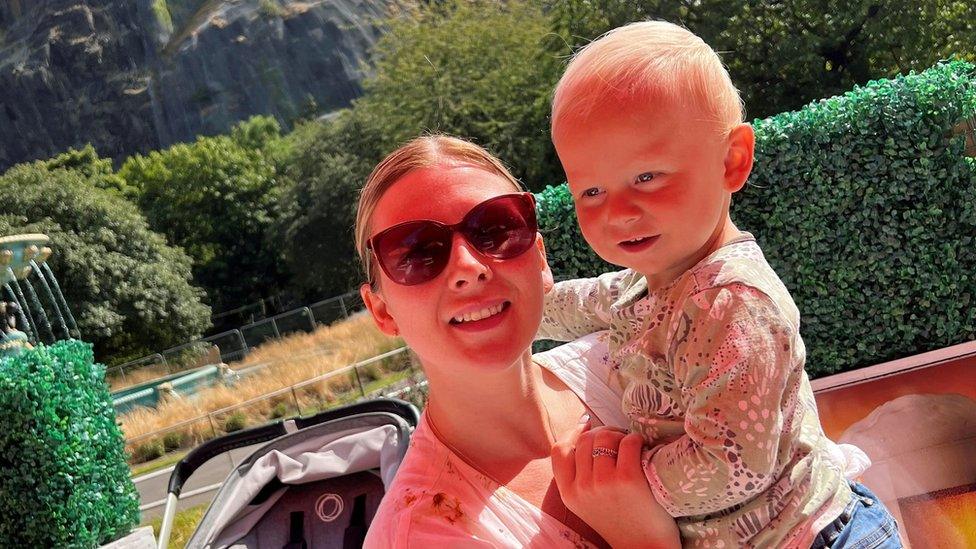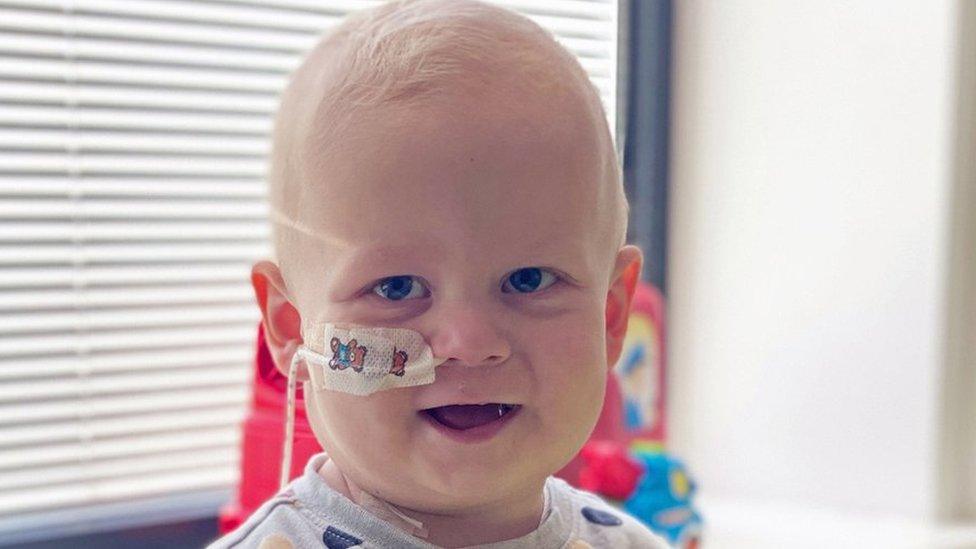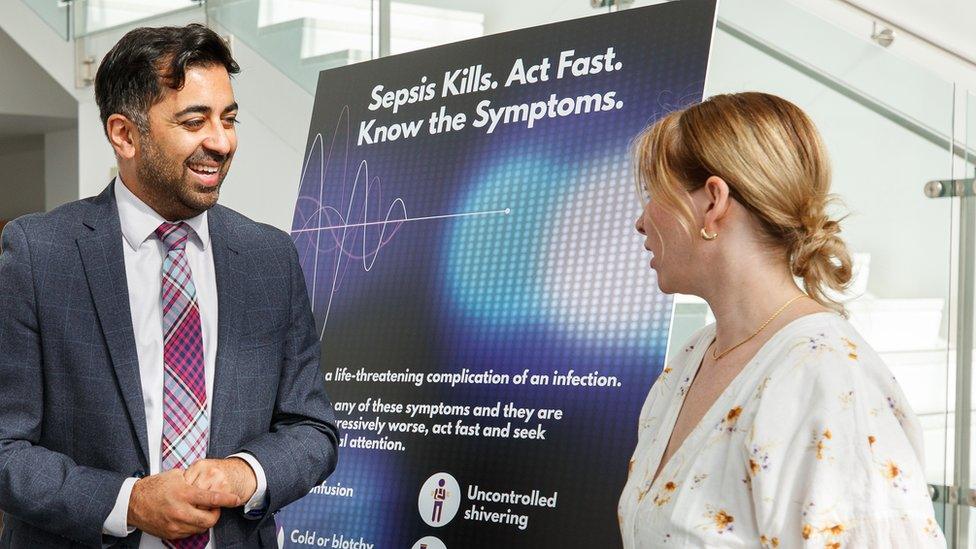Edinburgh mum's sepsis plea after son in hospital for weeks
- Published

When Corey's temperature wouldn't come down Aimee took him straight to A&E
An Edinburgh mum whose young son fell seriously ill after contracting sepsis is backing a campaign to raise awareness about the condition.
Corey King was 18 months old when he became ill and turned grey on boxing day last year.
He spent 27 days in hospital including two weeks in the paediatric ICU before being discharged in January 2022.
Now, his mum Aimee is encouraging other families to be aware of the signs of sepsis and how quickly it can progress.
Aimee said: "It's something you read about and don't expect it to happen to your loved one.
"The fear of the unknown took over. All of us were terrified Corey wouldn't pull through.
"If we had sat at home a day longer then our story probably wouldn't be a positive one unfortunately.
"Familiarise yourself with the signs and symptoms. Think could it be sepsis? It is safer to get checked than wait."

Corey spent 27 days in hospital including two weeks in the paediatric ICU

Corey returned home in January 2022 with a central line fitted into his chest to monitor his white blood cells.
To mark sepsis awareness month in September, the charity Sepsis Research FEAT is working in partnership with the Scottish Government in their first joint campaign since before the pandemic.
The charity said its aim was to raise public awareness of how to recognise the key symptoms of the condition which kills more than 4,000 Scots every year.
The five key symptoms of sepsis are:
Confusion
Not passing as much urine as normal
Very high or low temperature
Uncontrollable shivering
Cold or blotchy arms and legs
Colin Graham, chief operating officer at Sepsis Research FEAT, said: "Sepsis is a medical emergency. It is a devastating condition that can kill a previously healthy adult in hours.
"Even those who survive are often left with long term physical or psychological effects.
"We're asking everyone in Scotland to get involved this year by sharing our awareness campaign and learning the five key symptoms to help save lives."

Health secretary Humza Yousaf said early identification is critical for those with sepsis
Aimee joined Health Secretary Humza Yousaf at the University of Edinburgh's Roslin Institute - the base for sepsis research study GenOMICC.
The project is helping to develop improved treatments by examining DNA samples from patients throughout the UK.
Mr Yousaf said: "The Scottish Government's Scottish Patient Safety Programme continues to make progress in its action on sepsis.
"Focusing on early identification is critical and treatment within one hour of recognition has led to mortality rates among those identified at this stage falling by 21% since 2012."
Related topics
- Published3 May 2022
